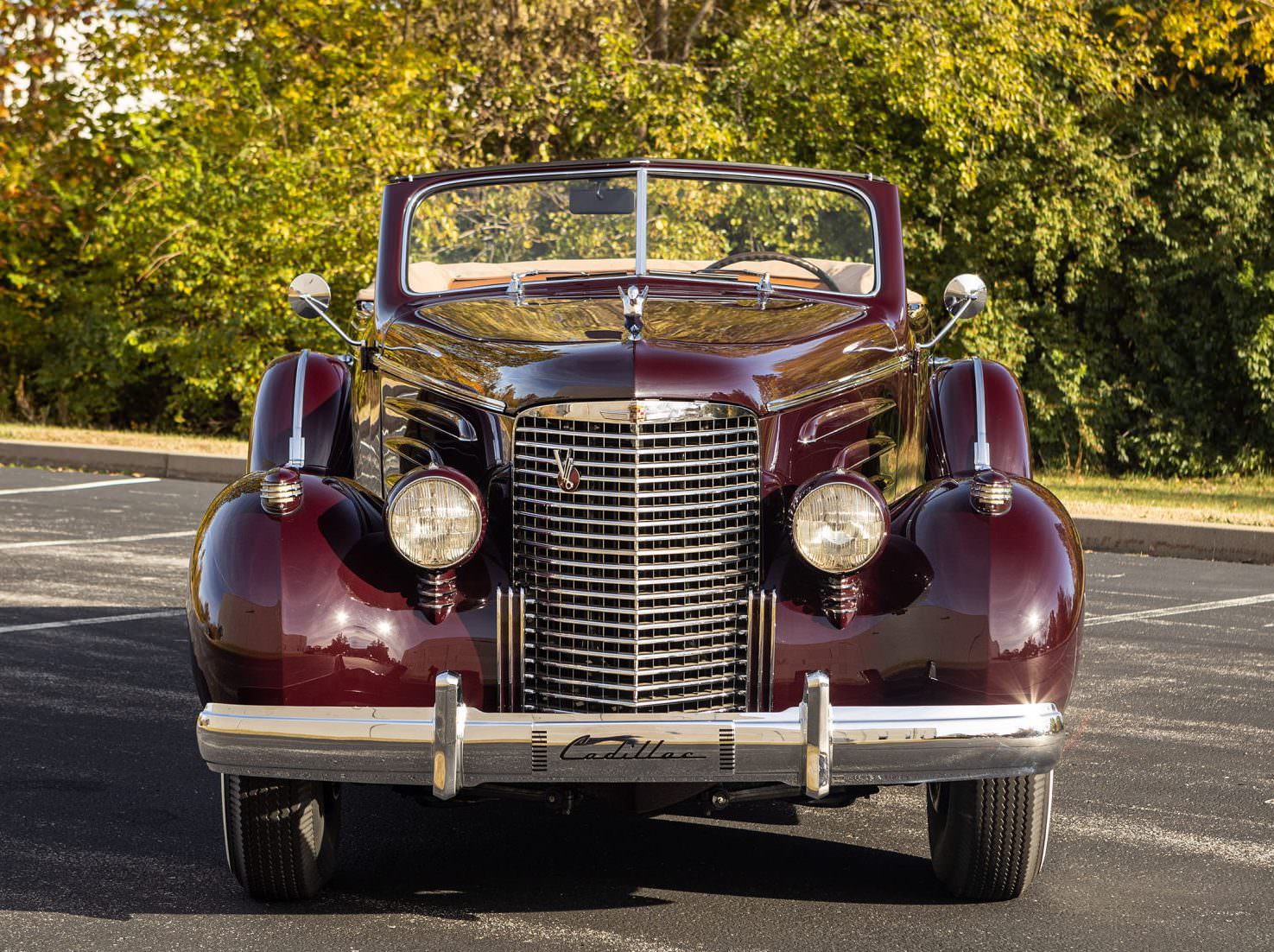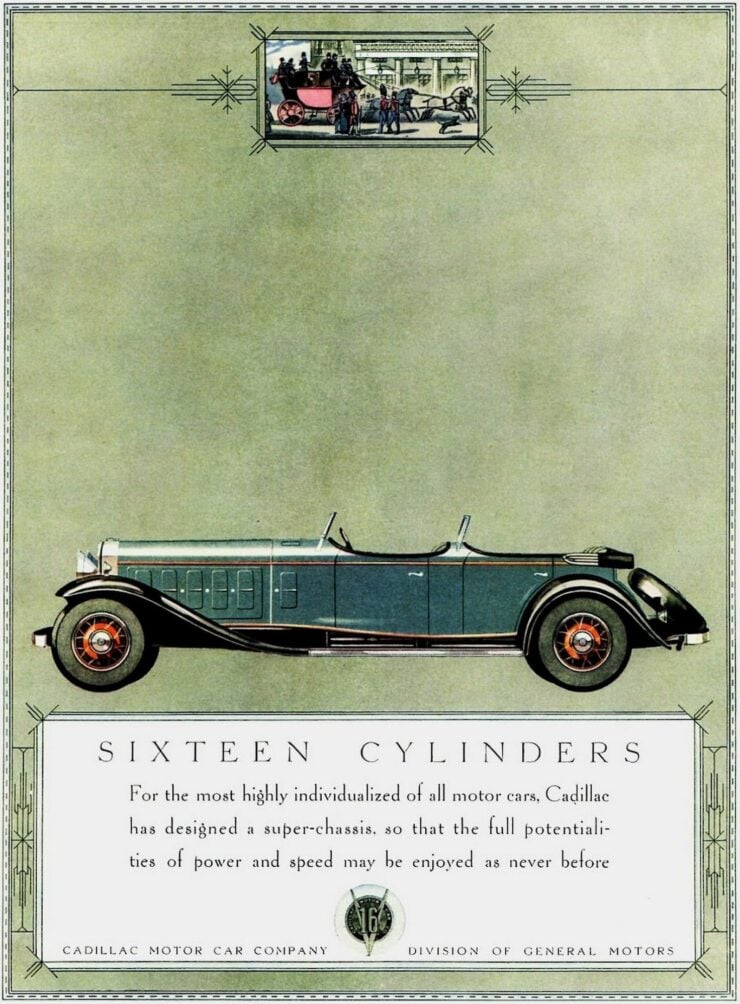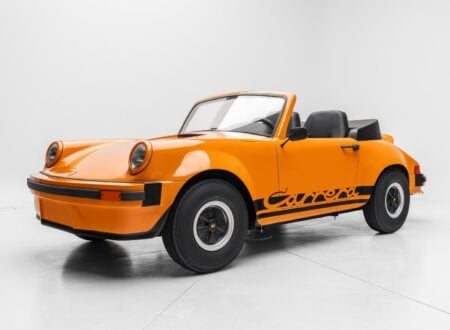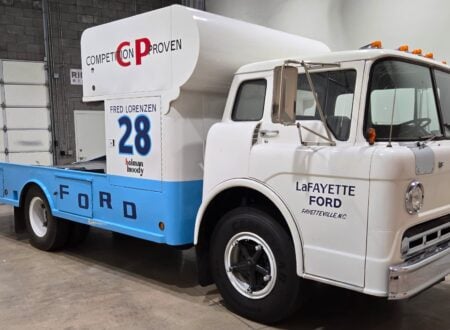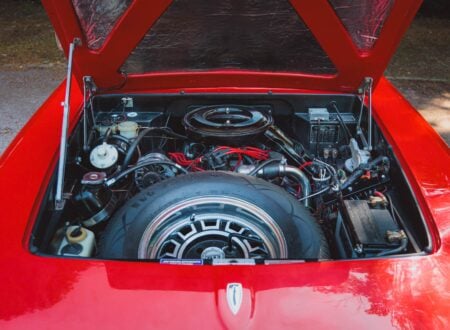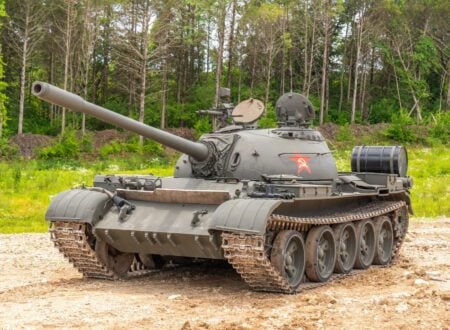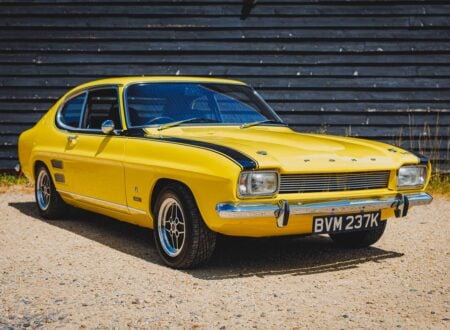The Cadillac Sixteen has the unusual distinction of being the first production car in the world to be powered by a V16. It became one of the most expensive and prestigious cars in the United States in the 1930s, and today it remains one of the most collectible classics from the era.
Unfortunately for the Sixteen it was a car designed in the roaring 1920s that was released in 1930, not long before the Great Depression descended across the United States and luxury cars became an unwelcome sign of ostentatious wealth.
Fast Facts – The Cadillac Sixteen
- Also known as the Cadillac V-16 (with the hyphen), the Cadillac Sixteen was undeniably the most desirable car in the United States and one of the most desirable in the world. It was the first production automobile with a V16 engine, offering incredible power, unrivaled smoothness, and of course, unbeatable bragging rights.
- Cadillac engineers had developed the V-16 in the 1920s, a boom time for the American economy that seemed like it would never end and in which luxury cars like the new Cadillac were in high demand. Sadly the economy came crashing down just a few months after the new car debuted.
- The Cadillac V-16 was sold over two generations, the first from 1930 to 1937 and the second from 1938 to 1940. Little was shared between the cars, and the V16s that powered them were completely different.
- The car you see here is a second generation Cadillac V-16 powered by the newer L-head V16 engine with a displacement of 431 cubic inches (7.1 liters) and the same 185 bhp as the earlier OHV engine.
The Race To Build The First American V16
Cadillac was one of the most important automakers in the world back in the early 20th century. They were the first to mass-produce a car with a V8 engine (in 1915 no less), the first to use a breaker-point ignition and the electric starter, and the first to use synchromesh transmissions.
Given their long history of innovation, it should be no surprise to discover that by the late-1920s Cadillac engineers were hard at work on a new engine – a V16 that would leave their V12, V8, and straight-eight powered rivals in the dust.
They weren’t the only ones with a V16 in development however, the Marmon Motor Company were working on their own design and Peerless would join the fray not long after.
An automotive arms race was underway in the United States fueled by the booming 1920s economy, a time when wealthy Americans had a seemingly endless supply of greenbacks for luxury automobiles. So long as this faucet of easy money stayed flowing, there would be more than enough demand for the new V16s.
The Great Depression officially began on October the 29th, 1929.
Cadillac was the first to market with their gleaming new V16, they named it the Cadillac Sixteen (or the Cadillac V-16) so that no one could possibly mistake it for a measly V12 or (heaven forbid) a V8. Perhaps one of the reasons they were first with a V16 was that they had the good sense to poach Marmon engineer Owen Nacker.
The Cadillac Sixteen
When the Cadillac Sixteen debuted in January of 1930 it shocked the automotive world and instantly became the king of the hill, certainly among the American manufacturers.
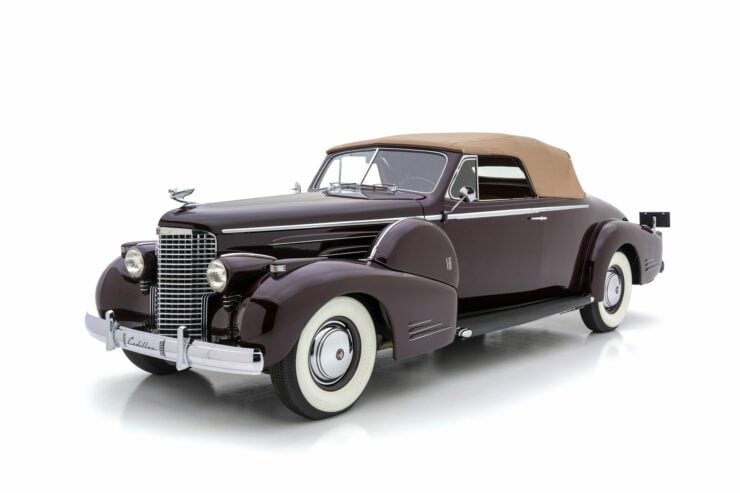

It was powered by the world’s first V16 in a production automobile, quite the coup for Cadillac, and in 1930 before the bottom feel out of the stock market they sold an astonishing 2,500 of them. Sales would slow drastically to 750 in 1931, then down to 300 in 1932, then fewer than 50 per year until 1937.
The V16 under the hood of the Sixteen was a marvel of engineering by the standards of the day. It’s a 45º V16 with overhead valves, a counterweighted five-bearing crankshaft, two valves per cylinder, hydraulic tappets, all joined together with two eight-cylinder iron blocks mounted to an aluminum-alloy crankcase.
Power was similarly impressive, with 185 bhp and 300 lb ft of torque from idle up to a peak torque of 320 lb ft at 1,400 rpm. The engine was so smooth and quiet that it’s said the points and carburetor intakes caused more noise than the combustion.
This engine was mated to a three-speed manual transmission, and torque was such that it was apparently possible to put the car in top gear when stationary and drive it around almost like an automatic.
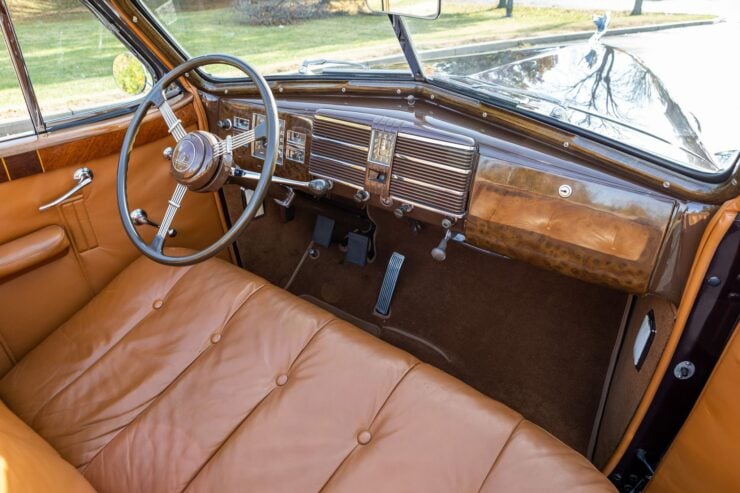

A wide variety of body styles were available for the car, there were dozens to choose from on varying wheelbase lengths, with the shorter wheelbase cars said to be capable of exceeding 100 mph.
The cost of producing each Sixteen was never recovered by Cadillac, the model was kept in production at a loss as a halo car for the marque. As the 1930s progressed it became clear that the Great Depression was not going to end anytime soon and plans for a new, second generation V16 model were developed.
This second generation car would have a simpler and less costly L-head (flathead) V16 with a displacement of 431 cubic inches (7.1 liters), but it would produce similar horsepower and torque figures to its predecessor.
This new car was called the Series 90, it had considerably updated design and looked much more like the cars of the 1940s than the 1920s as with its forebear. Though not as desirable as the first generation V16 the later Series 90 tends to be less costly to buy and maintain, resulting in it enjoying its own popularity with collectors.
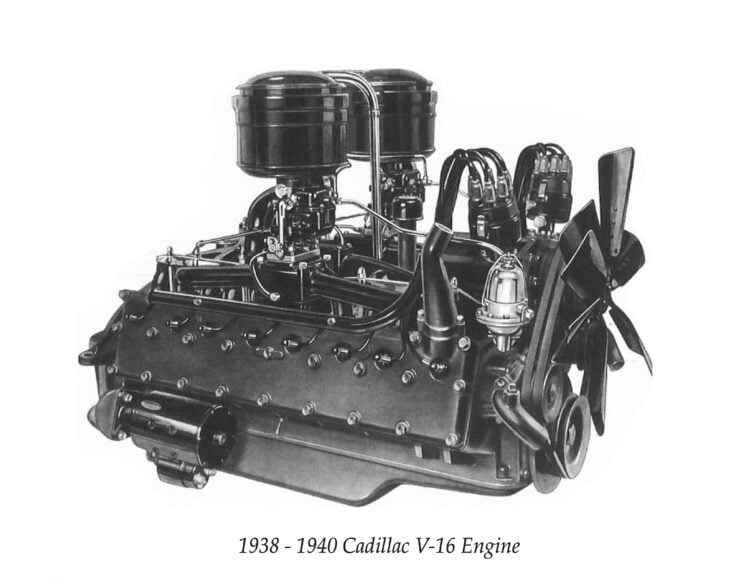

The 1938 Cadillac Series 90 V16 Shown Here
The car you see here is a 1938 Series 90 Cadillac V-16, it’s one of just 315 that were made for that year and one of only 10 built with the Fleetwood style number 9067 convertible coupe coachwork.
This V-16 was delivered new to Cadillac Auto Company of Boston, many decades later it was refurbished by an owner in the 1990s, and in 2007 it won the CCCA Senior National First Prize.
It’s finished in a period correct maroon over tan leather upholstery, with a tan convertible top, fold-down rear opera seats, a banjo-spoke steering wheel, a heater, and a radio.
If you’d like to read more about this unusual American classic or place a bid you can visit the listing here on Bring a Trailer. It’s currently being offered for sale out of Saint Louis, Missouri.
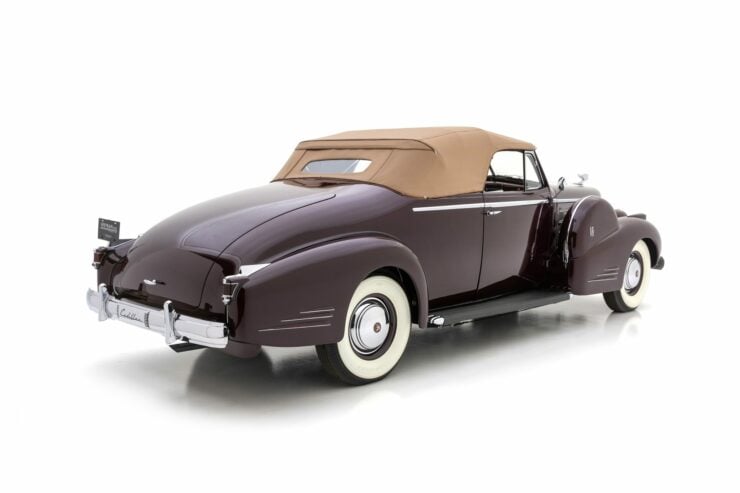
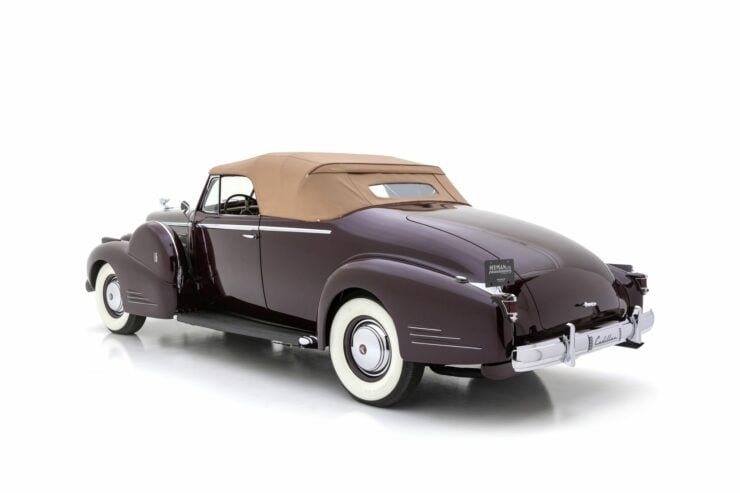
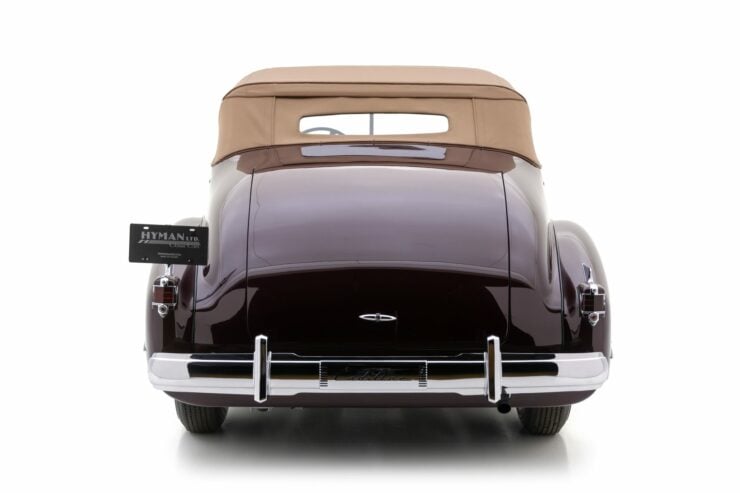
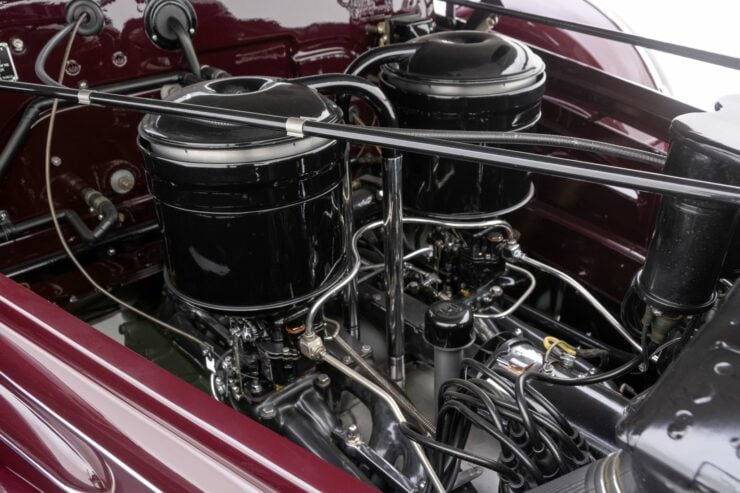
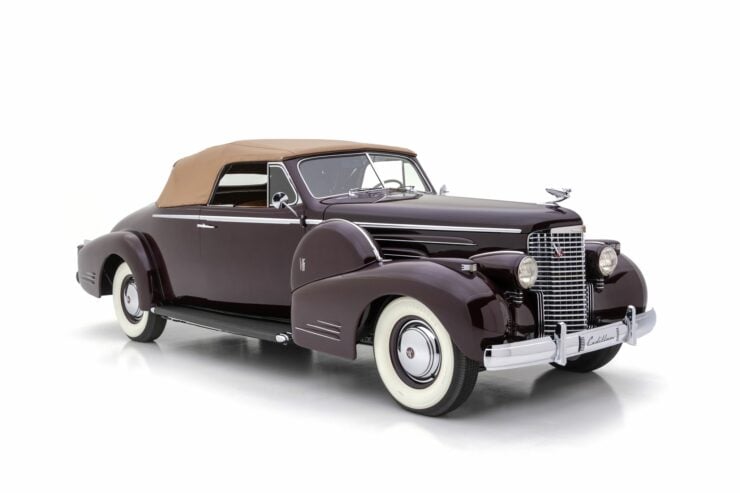
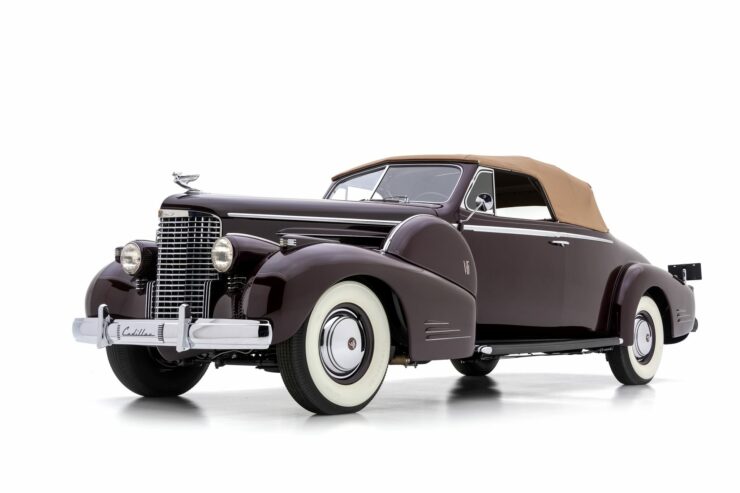

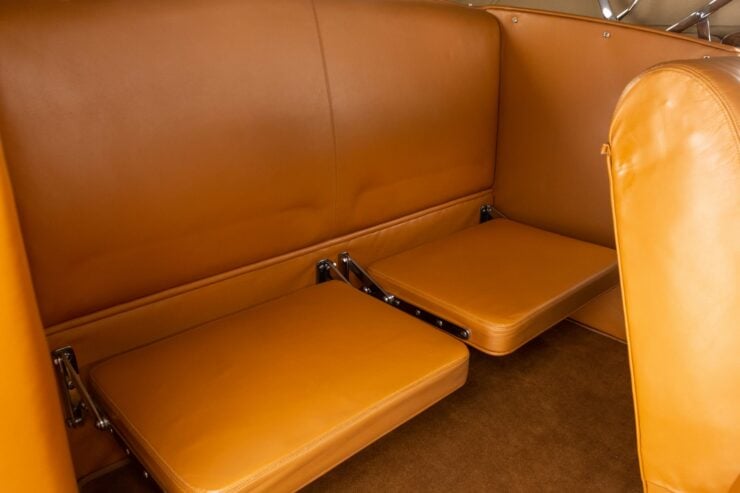
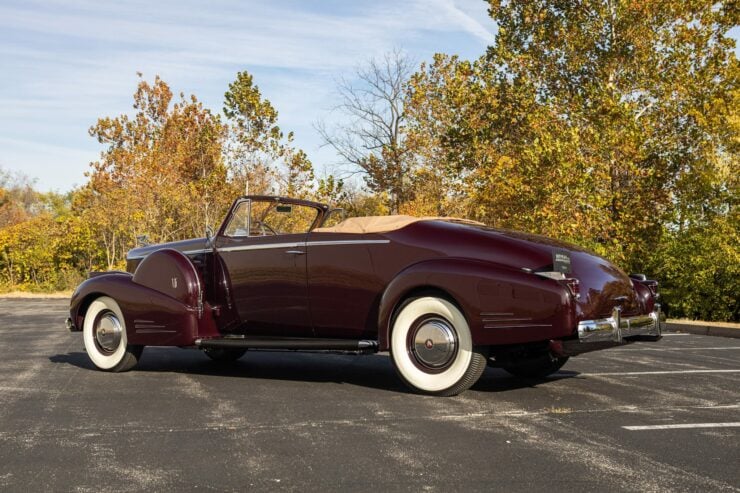
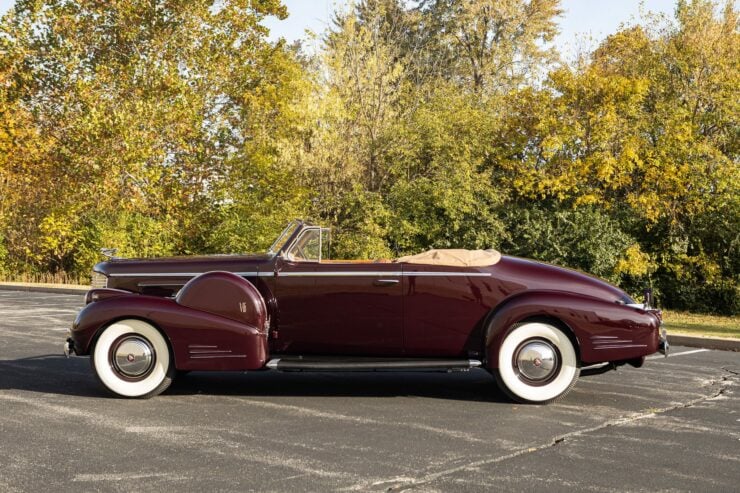
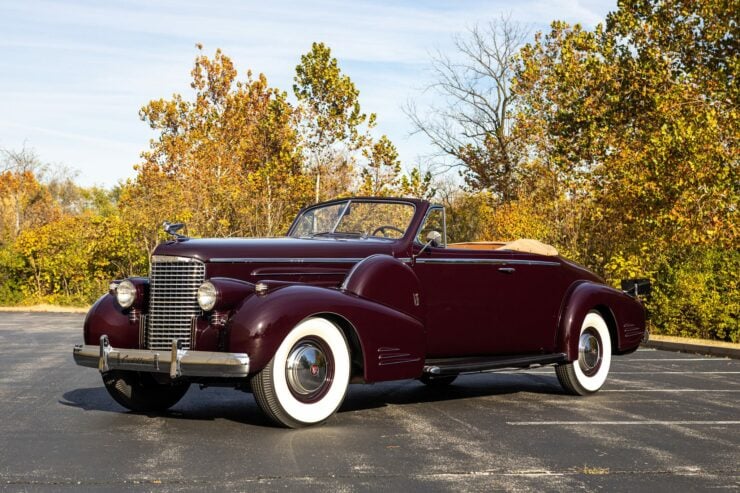
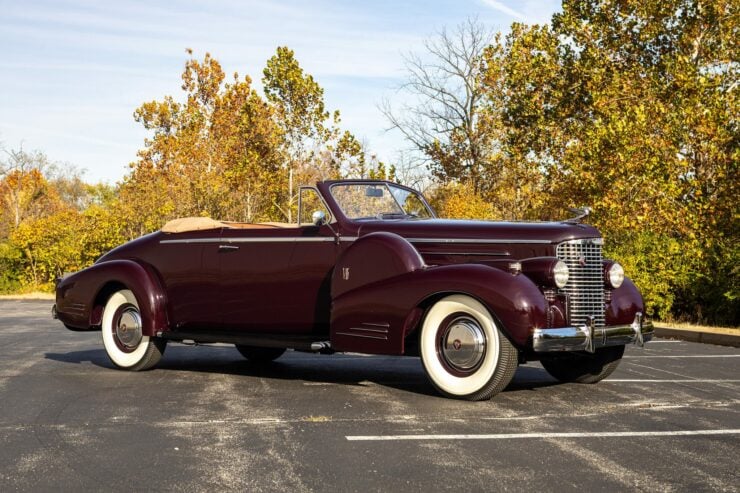
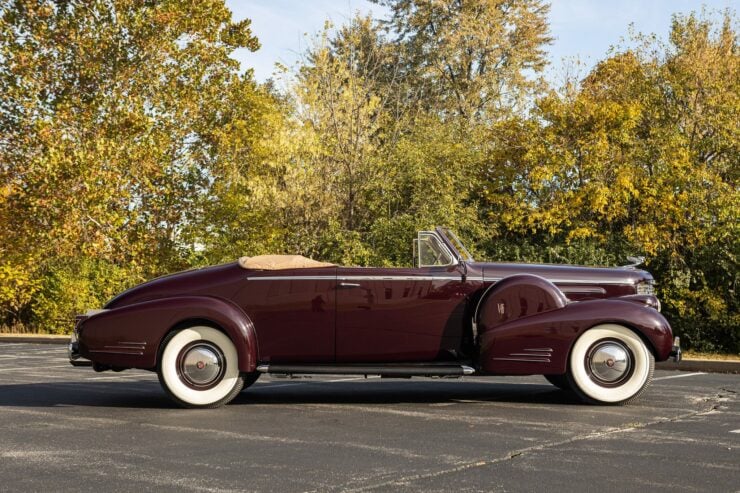
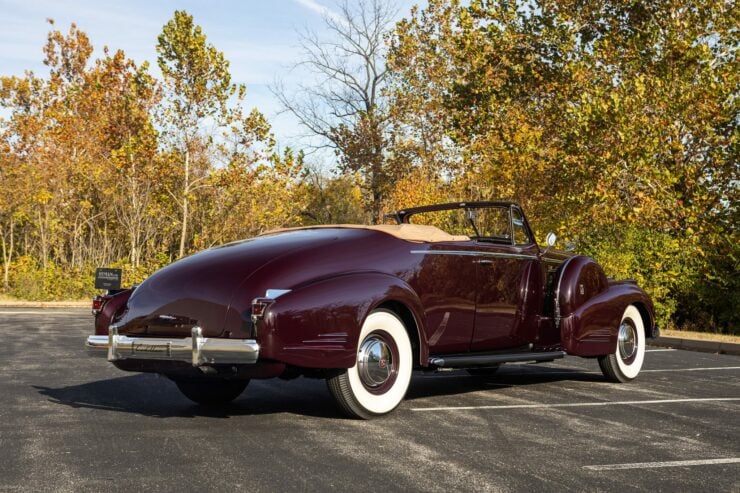
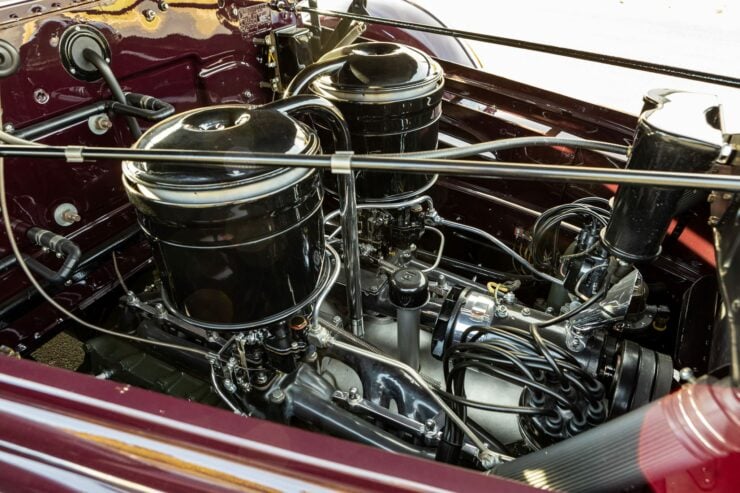
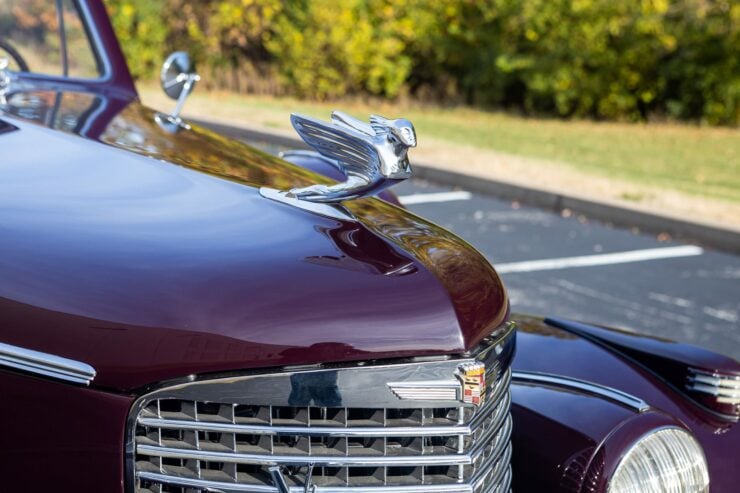
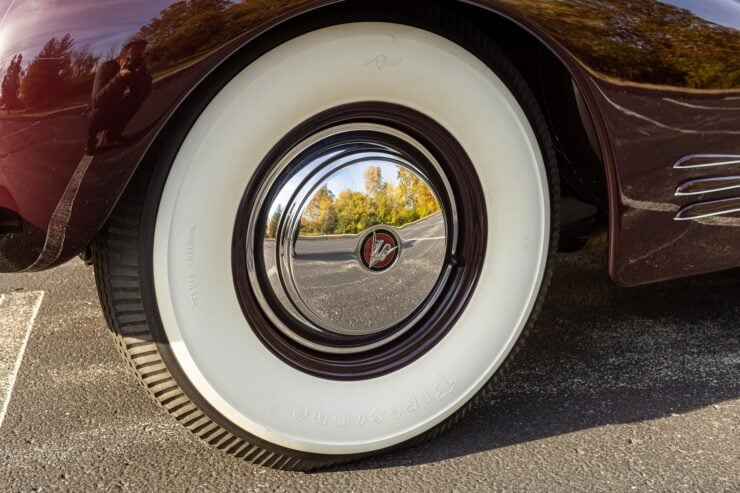
Images courtesy of Bring a Trailer.

